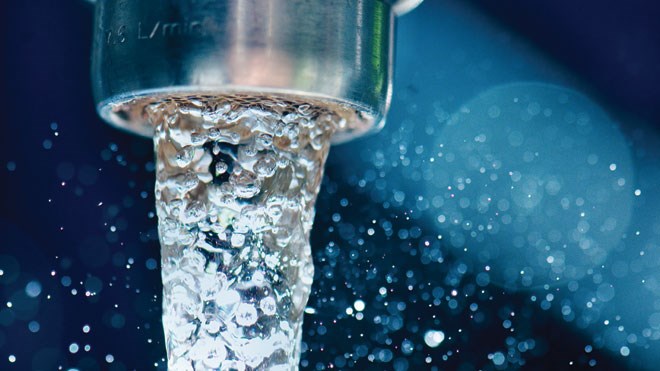Some businesses in Greater Sudbury whose operations are at risk of harming the city's water supply may soon have to install a device to protect the drinking water.
David Brouse, the city's compliance and operational support supervisor, said Ontario's building code was revised in 2014 to require all new buildings to install backflow devices. Since the change only applies to new buildings, that means a number of existing buildings that pose a risk aren't covered.
Brouse proposed the operations committee approve a backflow prevention bylaw, which would require businesses — and residents — at risk to install the devices.
He cited two examples from the last 10 years when backflow issues compromised a city's drinking water. In 2005 in Stratford, Ont., a plumber's mistake at a car wash ended up pumping soap directly into the water supply.
The problem was unnoticed until some residents discovered there was pink soap in the toilet. The problem took 56 hours to clear.
“All because of one mistake at a car wash,” Brouse said.
In another case, a chemical leak in Guelph left half the community without drinking water.
A safeguard like backflow prevention would protect the water system from these sorts of problems, Brouse said.
Hence, he is proposing a bylaw requiring backflow devices be installed, he said. Depending on size of the water service, the devices would cost between $1,500 and $11,000. For a residential home, the cost is substantially lower, at about $50.
“This bylaw would address every building that's at high risk,” Brouse said.
The city has already visited several such buildings, so staff has an idea where to start.
“We already have a great database built up,” he said. “It will go by risk factor – who has the highest risk of contaminating our drinking water.”
Ward 11 Coun. Lynne Reynolds wondered why the city would impose rules tougher than the province. If the province's building code is already updated, why is the city adding costs to businesses, she wondered.
“By stacking a bylaw on top of that, I think, just adds more red tape,” Reynolds said. “I can just imagine what is going to happen when we insist these companies or even residents are forced to buy these systems ... I think we have to be very careful with this bylaw.”
Wouldn't it be better to visit at-risk businesses and educate them on what they need to do, she asked.
“If they have a list of companies they feel are high-risk companies, let us go an educate them,” she said. “Let them decide if they want to do it or not.”
Brouse said the intent of the bylaw isn't to try and force businesses to install the devices. Education will come first, he said, and the city will be flexible on how fast they have to comply.
“We're not going to be out there banging on doors and laying charges,” he said. “We want to get them to understand why they need these devices installed.”
In the end, the committee voted to have a bylaw prepared and have it brought back at another meeting in the New Year.
Join Sudbury.com+
- Messages
- Post a Listing
- Your Listings
- Your Profile
- Your Subscriptions
- Your Likes
- Your Business
- Support Local News
- Payment History
Sudbury.com+ members
Already a +member?
Not a +member?
Sign up for a Sudbury.com+ account for instant access to upcoming contests, local offers, auctions and so much more.
